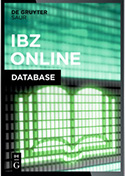Fluctuación del ser, amoralidad del devenir. Sabiduría dionisíaca en Judith de Friedrich Hebbel
Abstract
Judith's denomination as a tragedy may seem ambiguous: the supposed heroine appears triumphant, and the supposed villain impersonates a hero during part of the play. Nietzsche's notion of the Dionysian, and George Steiner's thoughts on tragedy allow us to see the clash of two perspectives in Judith: a moral worldview, of Hebrew origin, and another, pagan and tragic, based on an aesthetic justification of existence. The play's tragic element lies in the seduction of Judith by Holofernes, as it implies the triumph of a Dionysian worldview over a Hebrew one: thus an atrocious knowledge –that man's greatest crime is to be born– prevails over the demand for divine justice.Downloads
Los autores/as que publiquen en esta revista aceptan las siguientes condiciones:
-
Los autores/as [traductores] conservan los derechos de autor y ceden a la revista el derecho de la primera publicación, con el trabajo registrado con Licencia Creative Commons Atribución-NoComercial-CompartirIgual 4.0 Internacional, que permite a terceros utilizar lo publicado siempre que mencionen la autoría del trabajo y a la primera publicación en esta revista.
-
Los autores/as pueden realizar otros acuerdos contractuales independientes y adicionales para la distribución no exclusiva de la versión del artículo publicado en esta revista (p. ej., incluirlo en un repositorio institucional o publicarlo en un libro) siempre que indiquen claramente que el trabajo se publicó por primera vez en esta revista.
-
Se permite y recomienda a los autores/as a publicar su trabajo en Internet (por ejemplo en páginas institucionales o personales).











